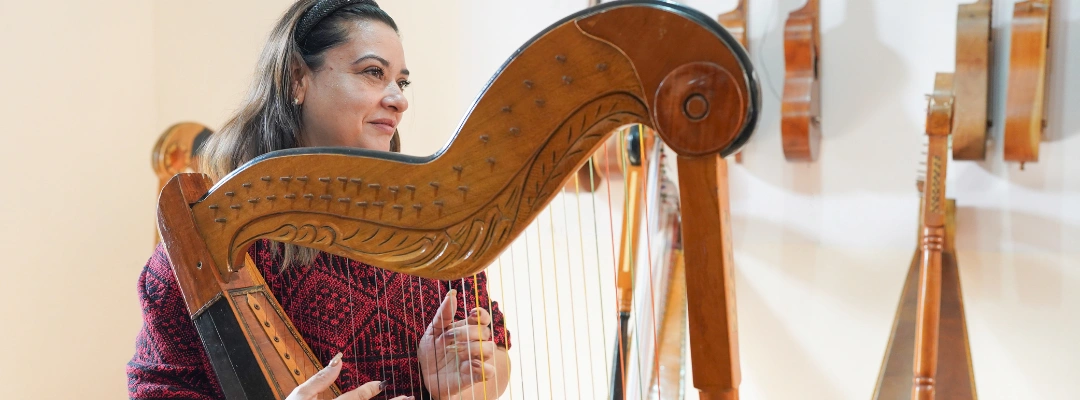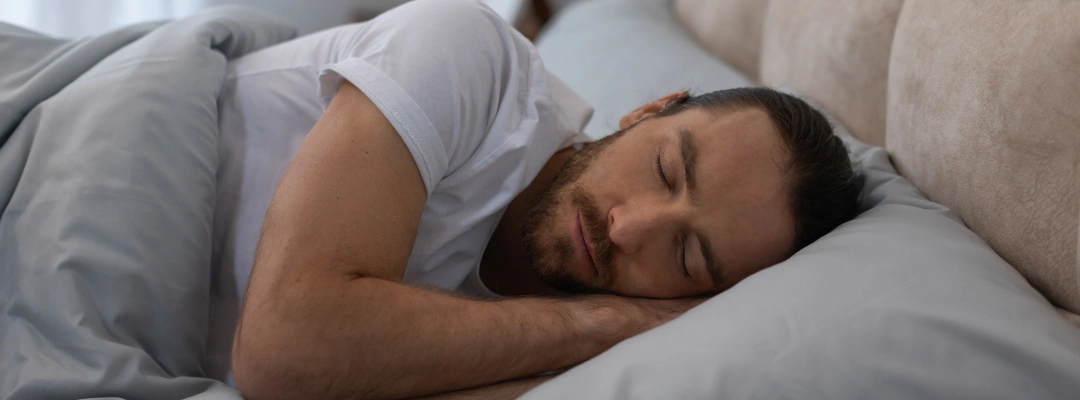Harp Music Therapy for Addiction Treatment
The Role of Harp Music in Addiction Treatment And Recovery
Have you ever heard the gentle, resonating, and almost otherworldly sound from strumming a harp string? It goes beyond just music and becomes something more healing.
This transcendent sound and healing nature is the reason why harp music therapies are used in some of the top addiction recovery programs across the United States.
The harp is part of a growing movement of music therapy, or music for healing instead of entertainment. And South Shores Recovery is a proud pioneer when it comes to using harp music therapy for addiction treatment support.
In a treatment context, sound therapy promotes reduced stress. It helps you process difficult emotions, and finally find a sense of peace.
We invite you to keep reading to learn more about how harp therapy can help you heal, and its’ place among the many evidence-based treatments that we offer at South Shores in Dana Point.
How is Harp Therapy Used in Substance Abuse Treatment?
Harp music is soothing. But that still might leave you with questions about how music therapy could possibly help you overcome substance use disorder. The truth is that sound therapy is really effective when used as part of a holistic treatment approach. And, the harp is proven to heal.
Harp sessions might be structured. For example, a music therapist may play the harp, while giving you instructions to listen mindfully or tune into your emotions. Or, you might pluck at the harp yourself as an outlet.
The harp has a calming effect outside of therapy, too. It’s proven to reduce cravings and it also provides a safe way to reconnect with your emotions. This reconnection is a big step after using substances that numb you so much.
Sound Therapy: Why the Harp Works
Harps produce a unique tone that resonates with your body. Sound therapy uses these vibrations and harmonics to facilitate certain program goals. For example, they might instruct you to let your thoughts flow freely. Or, to tune into how the harp makes your physical body feel.
For many of us, music has positive effects on your mood and well-being.
The drums, woodwinds, or other instruments can feel overwhelming and don’t resonate the same way. By contrast, playing or listening to harp music produces mellow tones. Its unique sound has a calming effect on your nervous system and eases anxiety. These are two big areas that you might struggle with during early recovery.
How Do Music Therapy Programs Support Recovery?
Many people don’t know the benefits of music. In fact, that’s why music therapy programs have been a part of addiction treatment for decades. Whether calm, classical music or the harp, music is proven to improve treatment outcomes.
Through music therapy, you can process trauma and tough emotions you may still be recovering from. It’s a healthy coping skill that can help you combat cravings, which are worst in the first year of sobriety. Harp therapy does all this and more. By incorporating it into individual or group sessions, many people find that the harp provides an outlet for healing that goes beyond just talk therapy.
What Role Does a Professional Music Therapist Play in Healing?
It’s not hard to enjoy the peaceful tones of harp music. When you work with a professional music therapist, though, they make harp music an active part of treatment. They can help guide you, choosing music that will help you reach treatment goals.
A therapist can also help you use guided imagery or relaxation techniques as you listen. By working with someone knowledgeable, sound therapy becomes more than soothing background music.
What Are the Benefits of Harp Therapy for Addiction Treatment?
More treatment programs are using music therapy to soothe and calm. Even after you quit using your substance of choice, your body and brain are still out of balance. They need time to adjust, and that’s where harp music therapy can help.
Playing or listening to music boosts your mood and promotes healing. It soothes pain and tough emotions. Harp music can also relieve feelings of anxiety and restlessness. Some people use it with mindfulness to fight off cravings.
How Does Music Therapy Support Mental Health?
We’ve seen a lot of cases where a person is struggling with addiction and mental health challenges at South Shores. Sometimes, mental health problems come first and contribute to a need to escape, leading to addiction. Other times, they come after addiction from the changes your brain goes through. The pair can even occur separately.
Harp therapy is a great dual diagnosis treatment for times like these because it supports mental health. It promotes relaxation and creates a sense of inner calm, relieving symptoms of depression and anxiety. The soothing sound also decreases emotional distress.
You have more space to process your feelings and rebuild self-esteem and confidence. And all of these things make recovery from addiction more sustainable.
How Does Harp Therapy Help with Mindfulness?
Mindfulness teaches you to focus on the present moment and stay grounded. It’s a useful tool for managing tough emotions, thoughts, or cravings common during recovery. During harp therapy, you’ll focus on the note of the harp, how the vibration resonates through your body, or the emotions it makes you feel.
A music therapist can guide you through this process. By becoming mindfully aware of the way the harp resonates through your body, it breaks cycles of worry and stress.
How Does Harp Music Therapy Support Sleep?
Sleep problems are common in addiction recovery. Alcohol and drug use disrupts your body’s natural sleep cycles. It takes time for damage to happen, and it also takes time to start sleeping “normally” after you quit. But listening to music, especially calming music like what comes from a harp, can help.
The harp’s slow, rhythmic patterns of music help regulate your breathing so you can relax. This makes it easier to fall and stay asleep. By calming your nervous system, harp therapy is a natural alternative to sleep aids. It supports healthier rest patterns essential for healing.
How Does Harp Music Help with Stress Reduction?
When harp music plays, its calming tones reduce cortisol, the stress hormone. It also activates the body’s relaxation response. Listening to or playing the harp is proven to lower heart rate and blood pressure. In recovery, this plays a big role. Managing your stress is one of the most effective ways to reduce the risk of relapse.
How Does Harp Music Benefit Physical Health?
Lowered blood pressure, reduced pain perception, and stronger immune response are all physical benefits of listening to music from the harp. Research even shows that it reduces pain in the human body. When you’re in recovery, you may be dealing with physical consequences of substance abuse alongside mental and emotional struggles. Harp therapy is an added support that helps your body and mind heal together.
Why the Harp Stands Out from Other Music Therapy Programs
Many instruments are used in music therapy programs, but not every musical instrument is created equally. Harps have a wide range of tones. They produce gentle, calming vibrations and have an ancient association with healing that makes them especially powerful in therapeutic settings.
Percussion or wind instruments can feel too overwhelming for musical therapy. By contrast, a harp’s sound encourages calm, reflection, and emotional release, all of which support your recovery journey.
How Can Music Therapy Be Combined with Traditional Addiction Treatment?
Harp therapy works best when combined with other holistic, evidence-based approaches. But, not all rehab facilities are created equally. Not everyone offers music therapy, despite the way that it’s been proven to improve mood and reduce stress.
At South Shores, we often find the road to healing comes from a holistic approach. We integrate music therapy with counseling, group therapy, nutrition, and other support for your physical, mental, and emotional state. As you heal on these different levels, you’ll find a better, more balanced path to treating addiction.
Learn More Holistic Approaches Like Harp Music Therapy at South Shores
Harp music therapy may not be the first thing that you think about when you decide to get clean, but it has a real impact on recovery. It helps calm your nervous system, relieves stress, and can help you find yourself again.
When paired with more traditional treatment, harp music becomes part of a holistic treatment plan that supports mind, body, and spirit. It can help you make real therapeutic change.
We offer a path to rehabilitation tailored to your needs, blending holistic options like harp therapy with evidence-based programs. As you find balance, you’ll also find lasting recovery with our support.
Have more questions about how music therapy can help you overcome drug or alcohol addiction? Please reach out to our caring team at South Shores Recovery in Dana Point, CA today to get answers and assistance!
References
Medical Reviewer
Katrina Harris
LMFT, Clinical Visionary Officer
Read Bio
Author
Christina Tchamanian
Program Director
Read Bio
Contact us






